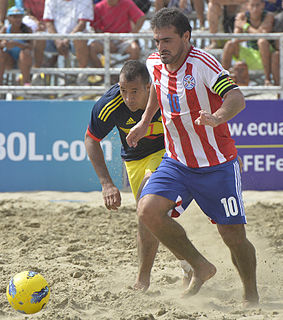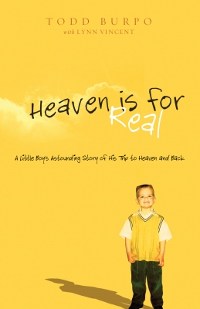A Quote by Curtis Sittenfeld
After I’d told her – the mall, the taxi, Cross stroking my hair – she said, ‘Did he kiss you?’ ‘John and Martin totally would have seen that,’ I said, and as I felt myself implying the circumstances had prevented our kissing, I thought maybe this was why you told stories to other people – for how their possibilities enlarged in the retelling.
Related Quotes
She didn’t understand why it was happening,” he said. “I had to tell her she would die. Her social worker said I had to tell her. I had to tell her she would die, so I told her she was going to heaven. She asked if I would be there, and I said that I would not, not yet. But eventually, she said, and I promised that yes, of course, very soon. And I told her that in the meantime we had great family up there that would take care of her. And she asked me when I would be there, and I told her soon. Twenty-two years ago.
She asked me what was wrong, and I told her I had to end it. She was surprised, and asked my why I thought so. I told her it wasn't a thought, more a feeling, like I couldn't breathe and knew I had to get some air. It was a survival instinct, I told her. She said it was time for dinner. Then she sat me down and told me not to worry. She said moments like this were like waking up in the middle of the night: You're scared, your'e disoriented, and you're completely convinced you're right. But then you stay awake a little longer and you realize things aren't as fearful as they seem.
"She (Minnie Ruth Solomon) was unusual because even though I knew her family was as poor as ours, nothing she said or did seemed touched by that. Or by prejudice. Or by anything the world said or did. It was as if she had something inside her that somehow made all that not count. I fell in love with her some the first time we ever talked, and a little bit more every time after that until I thought I couldn't love her more than I did. And when I felt that way, I asked her to marry me . . . and she said she would."
Though she hated to stop kissing, Luce held Daniel's warm face in her hands. She gazed into his violet eyes, trying to draw strength. "I'm sorry," she said. "For running off like I did." "Don't be," he said,slowly and with absolute sincerity. "You had to go. It was preordained; it had to happen." He smiled again. "We did what we needed to do,Lucinda." A jet of warmth shot through her,making her dizzy. "I was starting to think I'd never see you again." "How many times have I told you that I will always find you?
My mom had always wanted me to better myself. I wanted to better myself because of her. Now when the strikes started, I told her I was going to join the union and the whole movement. I told her I was going to work without pay. She said she was proud of me. (His eyes glisten. A long, long pause.) See, I told her I wanted to be with my people. If I were a company man, nobody would like me anymore. I had to belong to somebody and this was it right here.
A friend of ours, the wife of a pastor at a church in Colorado, had once told me about something her daughter, Hannah, said when she was three years old. After the morning service was over one Sunday, Hannah tugged on her mom's skirt and asked. "Mommy, why do some people in church have lights over their heads and some don't?" At the time, I remember thinking two things: First, I would've knelt down and asked Hannah, "Did I have a light over my head? Please say yes!" I also wondered what Hannah had seen, and whether she had seen it because, like my son, she had a childlike faith.
In the eulogy by the graveside, I told everyone how my sister and I used to sing to each other on our birthday. I told them that, when I thought of my sister, I could still hear her laughter, sense her optimism, and feel her faith. I told them that my sister was the kindest person I;ve ever known, and that the world was a sadder place without her in it. And finally, I told them to remember my sister with a smile, like I did, for even though she was being buried near my parents, the best parts of her would always stay alive, deep within our hearts.
I wanted to know how Jackie felt about [John F. Kennedy], and I got to know Rachel "Bunny" Mellon. Bunny and her were buddies. I asked, "How do you know what Jackie knew?" And Bunny said, "She told me."... Jackie called him "Magic." Bunny said she just picked her man. That was it. This was the guy she loved.
Mom said, "His spirit is there," and that made me really angry. I told her, "Dad didn't have a spirit! He had cells!" "His memory is there." "His memory is here," I said, pointing at my head. "Dad had a spirit," she said, like she was rewinding a bit in our conversation. I told her, "He had cells, and now they're on rooftops, and in the river, and in the lungs of millions of people around New York, who breathe him every time they speak!
One day he said, "I'll tell this town How it feels to be an unfunny clown." And he told them all why he looked so sad, And he told them all why he felt so bad. He told of Pain and Rain and Cold, He told of Darkness in his soul, And after he finished his tale of woe, Did everyone cry? Oh no, no, no, They laughed until they shook the trees... And while the world laughed outside. Cloony the Clown sat down and cried.
People said things they didn't mean all the time. Everybody else in the world seemed able to factor it in. But not Lena. Why did she believe the things people said? Why did she cling to them so literally? Why did she think she knew people when she clearly didn't? Why did she imagine that the world didn't change, when it did? Maybe she didn't change. She believed what people said and she stayed the same." (Lena, 211)
I don't suppose that she gave you the job based on looks alone?" Adrian had been staring off but now flashed me a big smile. "Why, Sage, you sweet talker." "That's not what I meant! What happened?" He shrugged. "I told the truth." "Adrian!" "I'm serious. She asked me what my greatest strength was. I said getting along with people." "That's not bad." I admitted. "Then she asked what my greatest weakness was. And I said, 'Where should I start?'" "Adrian!" "Stop saying my name like that. I told her the truth. By the time I was on the fourth one, she told me I could go.





































